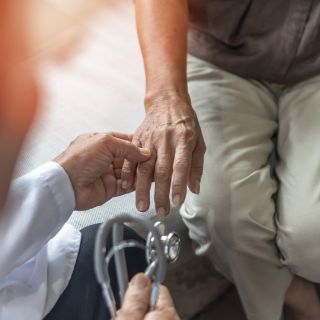Caregiving
Privilege in Caregiving
Personal Perspective: Caregiving is undeniably linked to socioeconomic factors.
Posted August 16, 2024 Reviewed by Tyler Woods
Key points
- Most people would agree that caregiving is a privilege, despite the stress.
- Advocating for a loved one is easier when you have the confidence, time, and energy to dedicate to it.
- Privilege plays a role in every aspect of our society, including caregiving.
My perspectives on caregiving need to be considered through a lens of privilege. It would be insincere to discuss caregiving without acknowledging the role of education, professional flexibility, and financial resources. They are advantageous. As they say, it’s expensive to be poor. That's because if you take time away from a low-paying job to care for your parent, you may risk losing the job, putting you in an even worse position. If your parents worked hard but saved little, their options for care as they age are diminished.

If your parents have money, but not quite enough to provide for their needs, you may be in the difficult position of spending down what they have so they can tap into public resources. Or maybe you’ll need to spend your own money.
Just after the Covid vaccine was developed and approved for use, the world wondered when and how people who most needed it would have access. My dad said that he’d initially thought he’d be at the top of the list. Weeks into the global pandemic, he confessed at the dinner table that he thought no one would prioritize a “broken-down old man” like him.
My heart wept.
So, when he leaned on the same table and said, “If you hear anything about a vaccine being offered, you let me know,” I felt called to a mission. Until that moment, I’d figured it would all come together, one way or another, but then I realized that the stakes—and his fear—were much higher than I realized, and that hope is not a plan. He did not want to die of Covid.
For the next three days, I clicked refresh on the county public health website every 5 to 15 minutes. No exaggeration. I had work meetings, but they were online, so I could afford the time it took to click.
Then, in the blink of an eye, my parents’ risk category on the county's site was changed from level three to level two, suddenly making them eligible for a vaccine at a handful of locations in the county. I called the clinic listed and secured an appointment for a few days later. I started crying. I had no idea how stressed my body had been.
My dad thought I was joking when I called him about the appointment. I canceled my meetings and drove my parents to the appointment. Neither of them believed it was happening until it happened.
Four weeks later, the national conversation suggested that perhaps people shouldn’t get a second dose when so many people were still waiting for their first. Dad said he didn’t believe they’d get the second, ever the pragmatist about managing his own expectations. He told me to be ready to fight for it. That’s the only time he’s asked me to fight. But no fight was necessary. We showed up for the appointment and they each received the second dose. I opened a bottle of prosecco and served it in shot glasses to celebrate. Shots for their shots.
This story is not about Covid, or vaccines, or caregiving: it’s about privilege. I had an upbringing that supported education, which offered me unique experiences, which led me to interesting and fairly compensated jobs, which gave me flexibility, which led to being able to adapt in highly unusual ways during a global pandemic, just as my father’s health deteriorated and my parents needed me most.
That I could be online for three consecutive days in order to find that little window of opportunity to secure a vaccine appointment, which would not be available again for weeks or months, and even then would require the same dogged approach, is not lost on me.
It is in part will, of course—my will in listening to my dad, exploring the options, and then steadfastly tracking them.
But the fact that my persistence was an option in the first place made all the difference.


